
North Uist is an island and community in the Outer Hebrides of Scotland.

Runrig was a Scottish Celtic rock band formed on the Isle of Skye in 1973. From its inception, the band's line-up included songwriters Rory Macdonald and Calum Macdonald. The line-up during most of the 1980s and 1990s also included Donnie Munro, Malcolm Jones, Iain Bayne, and Pete Wishart. Munro left the band in 1997 to pursue a career in politics and was replaced by Bruce Guthro. Wishart left in 2001 and was replaced by Brian Hurren. The band released fourteen studio albums, with a number of their songs sung in Scottish Gaelic.
Catherine-Ann MacPhee is a Scottish Gaelic singer from Barra in the Hebrides, now resident in Canada. She has worked in the theatre and broadcasting as well as giving musical performances in Scotland, England, Canada and elsewhere. After a period living in Ottawa she moved to Halifax, Nova Scotia, in 2017.
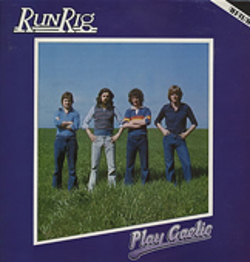
Play Gaelic is the first album by the Scottish Celtic rock band Runrig. It was released in 1978 on LP and tape by Neptune Records. In 1990 it was re-released on CD by Lismor Recordings with different cover art.

Recovery is the third album by Scottish Celtic rock band Runrig, released in 1981. The album deals with the social history of the Scottish Gàidhealtachd, mirroring a renewed sense of cultural and political identity within the Scottish Gaelic community.

The Cutter and the Clan is the fifth album by Scottish Celtic rock band Runrig. It was the band's breakthrough album, taking them from cottage industry to the international stage. It was also the first Runrig album to feature keyboard player Pete Wishart - forming the "classic" line-up of the band through what would be their most commercially successful period. Originally recorded on the band’s own Ridge label, it was taken on board by Chrysalis Records as part of a 1987 major recording contract. Highlights include the song "An Ubhal as Àirde", which was later to become the first and only Scottish Gaelic language song to reach the UK Top 20, reaching #18 in 1995, and was used in an advert for Carlsberg lager.
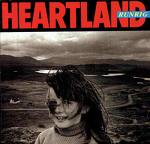
Heartland is the fourth album by Celtic rock band Runrig. It was released in 1985, and was their first output in which English songs exceeded the number of Gaelic ones.

Everything You See is the thirteenth album by the Scottish Celtic rock band Runrig, released by Ridge Records in the United Kingdom on 14 May 2007. All songs were written by band members Calum and Rory Macdonald, except for "Sona" and "And the Accordions Played", which they co-wrote with fellow band members Malcolm Jones and Brian Hurren, respectively. As on all Runrig albums, several songs are written and performed in Scottish Gaelic, underlining the band's heritage.
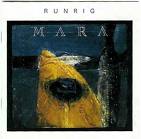
Mara is the ninth album by Scottish Celtic rock group Runrig, released in 1995. The title means 'of the sea' in Scots Gaelic. It is the last album featuring Donnie Munro on vocals and the fifth and final album released by the band on Chrysalis Records.
Once In A Lifetime is a live album by Scottish Celtic rock band Runrig. It was released in 1988.

Malcolm Macleod, BEM was a crofter who famously built Calum's Road on the Island of Raasay, Scotland. He was Local Assistant Keeper of Rona Lighthouse and the part-time postman for the north end of Raasay.

Searchlight is a 1989 album, the sixth by Scottish Celtic rock band Runrig.

Amazing Things is a 1993 album, the eighth by Scottish Celtic rock band Runrig. Amazing Things was ranked the #3 best album of the 1990s in the music review column The War Against Silence by Glenn McDonald: "The most life-affirming album ever made. Maybe the most life-affirming art work ever made."

The Stamping Ground is the eleventh studio album by Scottish Celtic rock band Runrig, released on 6 May 2001 on Ridge Records. The album marks the final appearance of keyboardist Peter Wishart, who departed from the band to follow a career in politics.
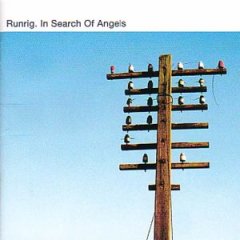
In Search of Angels is a 1999 album, the tenth by Scottish Celtic rock band Runrig. This is the first Runrig album without longtime lead vocalist Donnie Munro, introducing his replacement Bruce Guthro.

Proterra is the twelfth album by the Scottish Celtic rock band Runrig, with Paul Mounsey.
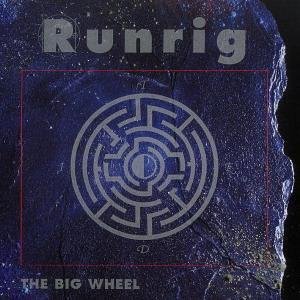
The Big Wheel is a 1991 album, the seventh by Scottish Celtic rock band Runrig.
Calum MacDonald is a musician who was a founder member of, and percussionist in, the Scottish Celtic rock band Runrig, as well as their primary songwriter with his older brother, Rory MacDonald from 1973 to 2018. Generally, Rory writes the melodies, and Calum the lyrics.

The Battle of Carinish was a Scottish clan battle fought in North Uist in 1601. It was part of a year of feuding between Clan MacLeod of Dunvegan and the Clan MacDonald of Sleat, that ended with a MacDonald victory and an enforced peace.
The Band from Rockall is a duo and solo project of Runrig songwriters Calum and Rory Macdonald. It is also the title of their debut self-titled bilingual album in English and Gaelic The Band from Rockall.















